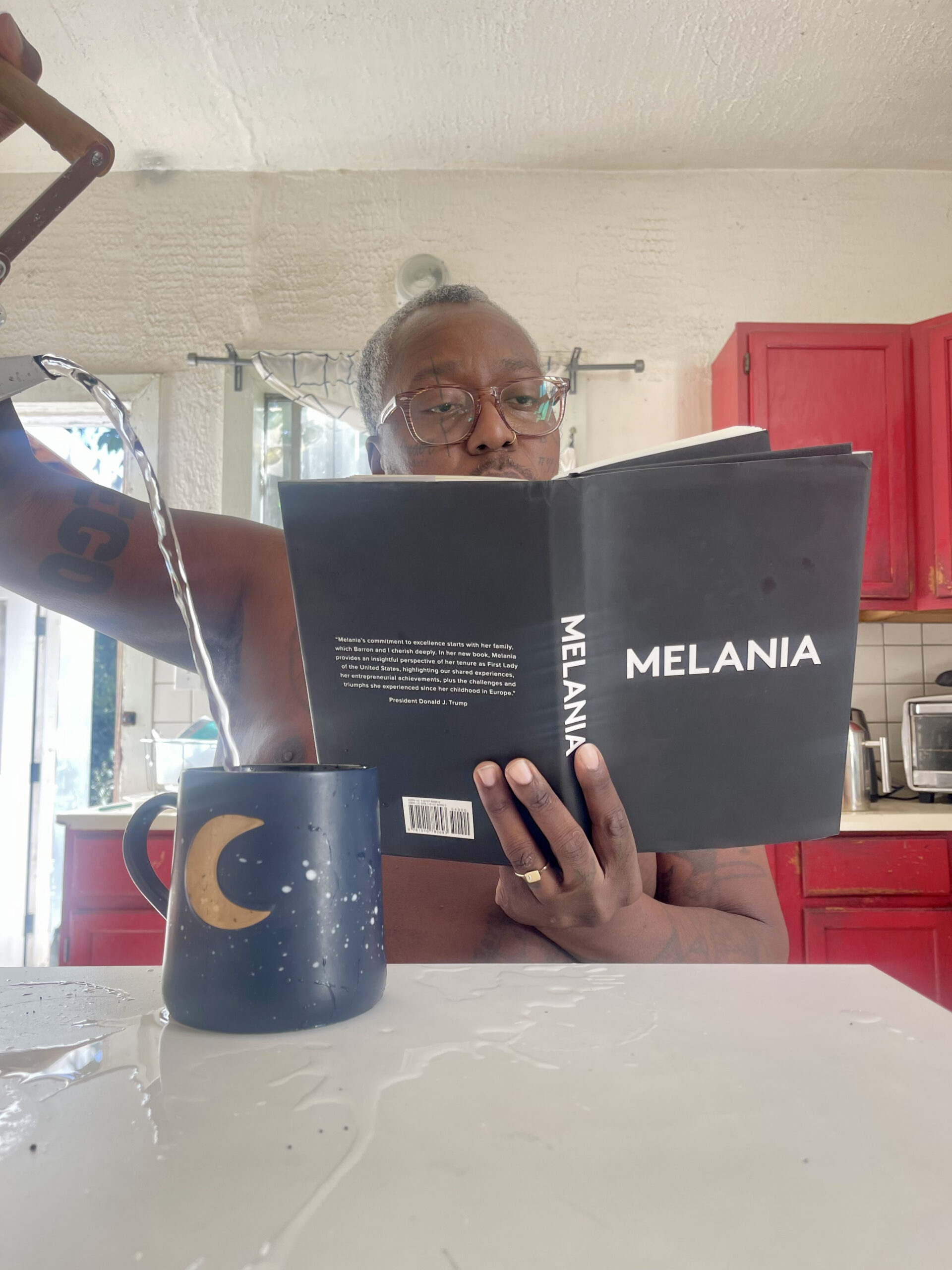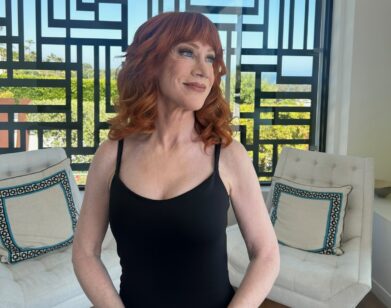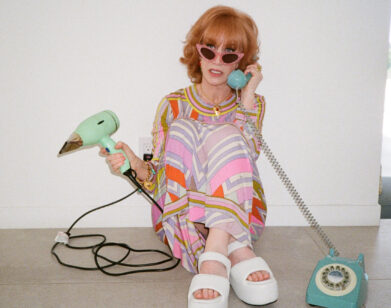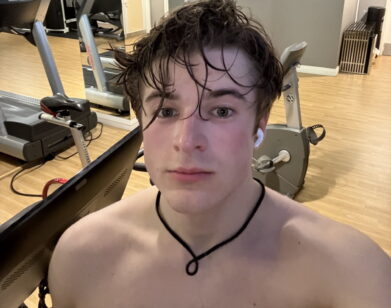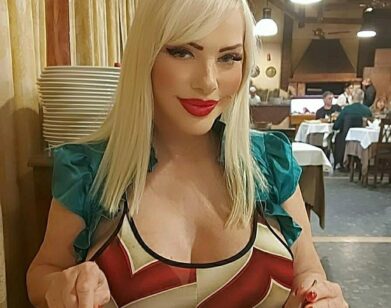FIRST LADY
“At Least Her Dress Is Pretty”: Brontez Purnell Reviews Melania Trump’s New Memoir
There was this game I used to play with Michelle Obama’s autobiography that to this day I still indulge in. It’s a sort of bibliomancy, and Obama’s book is one of those texts where you can turn to virtually any page and find something deeply inspirational. Even as I flip to page one, the preface alone snags me. The first quote I’m staring at basically says it all: “So far in my life, I’ve been a lawyer. I’ve been a vice president at a hospital and the director of a nonprofit that helps young people build meaningful careers. I’ve been a working-class black student at a fancy mostly white college. I’ve been the only woman, the only African-American, in all sorts of rooms. I’ve been a bride, a stressed-out new mother, a daughter torn up by grief. And until recently, I was the First Lady of the United States of America—a job that’s not officially a job.” It’s almost exhausting, but I cite this only because I can’t think of any other first ladies whose biographies I’ve bothered to read. Until now.
Melania, the recent memoir by former first lady Melania Trump, moves a bit slower. (For scale Michelle’s autobiography is 340 pages and Melania’s is 182, but who’s keeping count?) I can start by saying that it is, at least in parts… fascinating? I don’t think I’ve ever really thought much about Melania Trump. By design, she’s always appeared to be a rather muted first lady. Reading Melania almost reminded me of how I felt about the movie Priscilla, that is, a biopic about a woman of a certain leisure class who isn’t really allowed to reveal too much of her deep interior. Case in point: halfway through the book, I still didn’t feel as if I knew this person. It proceeds more like a catalog, or an outline of events. But with a text like this, one can still read between the lines.
Trump states that her upbringing in Eastern Europe was atypical, taking pains to distance herself from the “poor Eastern European” narrative and Soviet Communism altogether. Her mother was a patternmaker for children’s clothes and her dad was a mechanic. Trump herself was an art student with a focus on architecture, and that’s around the time she became a model and moved to the United States. The rest is, well, history.
Throughout the book are these little kernels of information that feel self-exonerating, like when she talks about marrying Trump and having to dodge accusations of gold-digging; or later, when she mounts a defense of nude modeling as an act of high art. And in a bare-bones moral sense, she’s correct, though this smooths over the fact that she was young, poor, and needed the money, which would land more relatably with all us art muse girls who’ve had to do it at some point, myself included. And it’s a moot point, anyway; in 40 years, everyone’s grandma will have had an OnlyFans, so who would care about some 90’s nude photographs? Trump then goes on to campaign against bullying, which I found ironic. Later on, I was stuck by the chapter, coming out of nowhere, in which Trump discusses her affordable jewelry-making business. Like, she makes jewelry? What?
It should be stated that the only blurb on the book jacket is from her husband, Donald Trump himself, which reveals something about the feel of the book: it’s no more than a cog in the machine of his reelection campaign. While Mrs. Trump’s former life as an artist is hinted at, the book hinges largely on the fact that she’s his wife. Accordingly, the narrative pivots about halfway through to the White House and Trump’s duties as the First Lady, which she describes as “the hardest volunteer job in America.” She annotates the hardships of having to put together outfits and shake hands with people, and there’s a nearly chapter-long section where she takes on the grueling and thankless task of remodeling several bathrooms in the White House, some of which had been untouched since the 1950s! I found it odd that they would remodel them, though—isn’t Donnie’s whole fuckin’ schtick turning America back to the 50s? Anyway, there’s a very upbeat, steadfast, and dare I say chipper tone to the text—the words are chosen carefully, and if you were to take Trump’s name off the book entirely, it might read as though it was written by some paint-by-the-numbers liberal, a far cry from how her husband handles things.
Melania Trump’s position as wife to one of the most divisive presidents to ever step foot in the Oval Office is always the elephant in the room, something that has reshaped the entire Conservative movement as we know it. I myself was born in the Reagan Era, when Ronald Reagan, an actor, assumed the office of President and recodified Conservative politics forever. I have now lived to see Donald Trump, a reality TV star, do pretty much the same thing, but in a world so different from the one I was born into. However you may feel about conservatives, at least the old guard did seem to have a grasp, or purport to have a grasp, on decorum.
But now we watch presidential debates punctuated with jokes about dick size and mockeries of the disabled, the kind of revelry that makes me feel like we’re watching the very worst aspects of reality television. But it’s all too fucking real, and as a writer I think that 20 years of reality television ushered in rapid societal decline. That part where Hollywood fired most of its writers and said, “Let’s just get people drunk and film them”—well, the effects remain. But I digress; back to Melania.
Melania, in large part, feels like a return to scripted media: measured and concise enough that one has a hard time discerning how genuine a biography it is, or if it’s just another tool of the Presidential race regime, though it can certainly operate as both. Near the end of the book is a very confusing part where Mrs. Trump says for the first time that she is pro-choice. Considering her close proximity to the overturning of Roe v. Wade, I gagged a bit. It’s the book’s most notable deviation from the script, but I ask myself, “Does this even matter?”
I was hesitant at first to even review this book out of sheer fear of retribution. That said, while I don’t view her as a “sympathetic character,” nor do I feel the need to slam-dunk on her. At the end of it all, it seems she wants to be known as an artist who somehow ended up First Lady. Innocent enough, I suppose, and there was even one part of the book that moved me, such as when Trump prints the entire eulogy of her dead mother who inspired her pursuit of art in the first place.
But I suppose the larger implication here is that this book wants to paint the Trumps as people like both you and I. And oh honey, that is simply not the case. I will spare you the broad politics talk and leave you with this: everyone, at some point, should be allowed to tell their own story, but I struggle to move past how largely static and bloodless this memoir is considering the chaotic context in which it arrives. The book is only interesting insofar as it actually introduces us to Melania, who often seems like a kind of phantom, but it’s terminally boring as an argument for a second Trump term, which speaks to how tedious and overly long the election cycle has been. This decade-long Trump saga has felt to me like all the worst aspects of a very long plane ride: lobotomized boredom punctuated with turbulence and terror. And with this book, Melania Trump is the beautiful flight attendant strolling the aisles with a complimentary beverage cart as the plane nosedives into the ground. But at least her dress is pretty.

